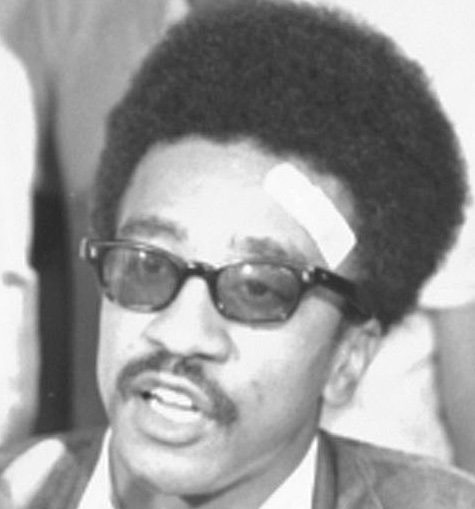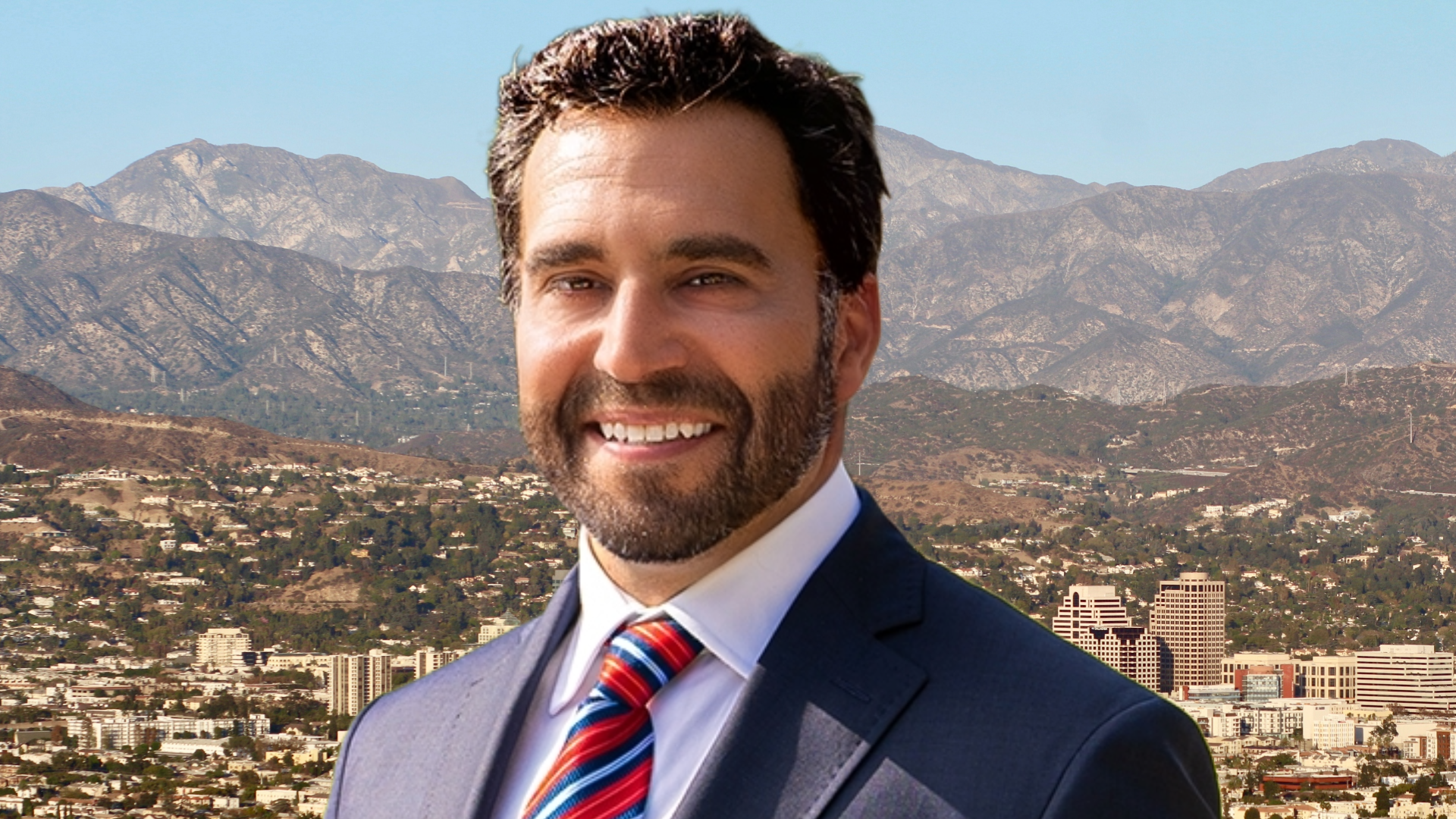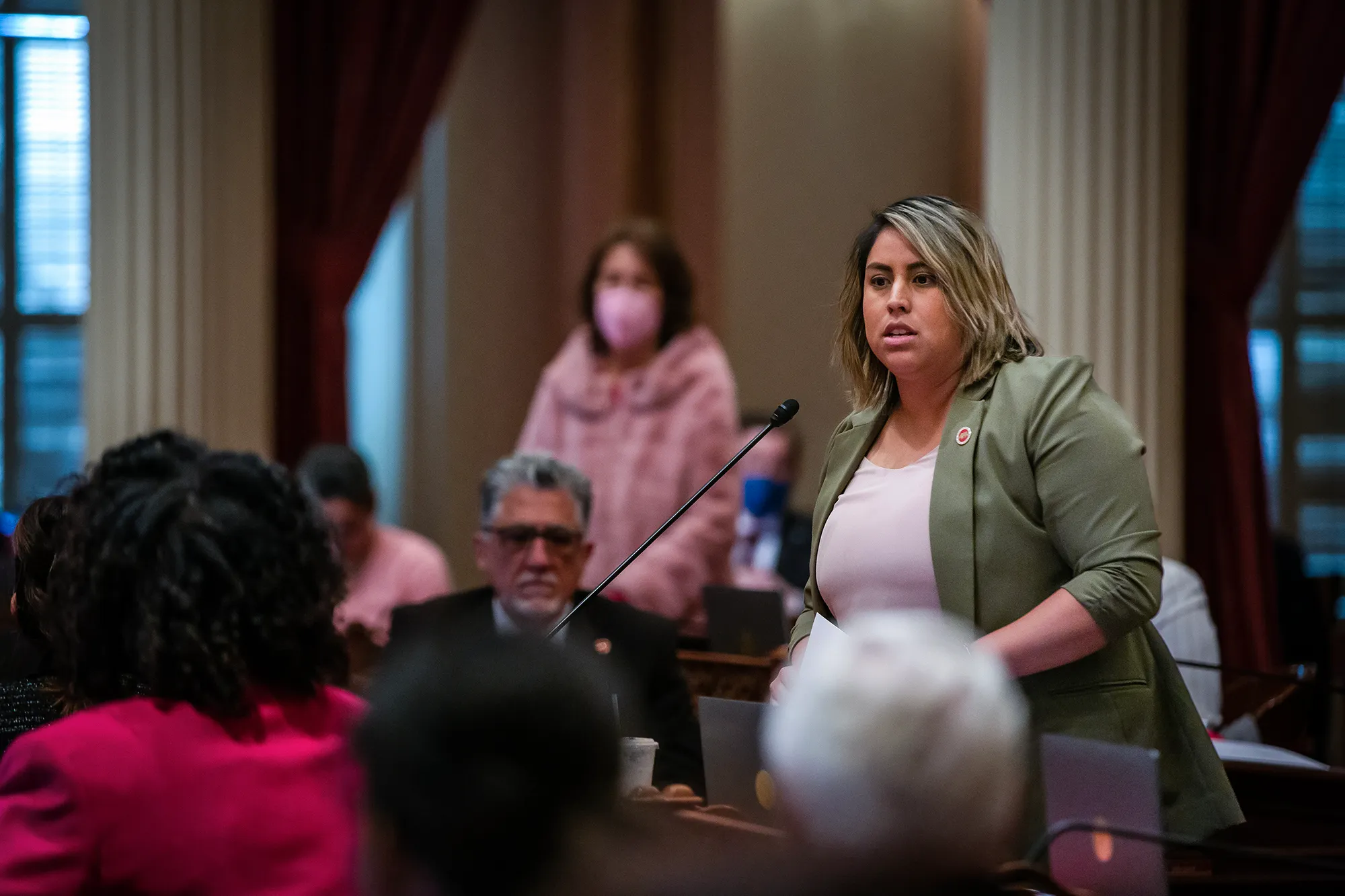NAACP urges Legislature to approve reparations bills

Students from UCLA visit the State Capitol earlier this year to show support for the reparative justice bills SB 518 and SB 437, authored by state Sen. Akilah Weber Pierson. The bills are being held up in the Assembly Appropriations Committee.
Photo by Antonio Ray Harvey
By Antonio Ray Harvey
Contributing Writer
SACRAMENTO — The California-Hawaii State Conference of the NAACP is urging the Legislature to pass two reparations bills authored by state Sen. Akilah Weber Pierson, D-San Diego, chair of the California Legislative Black Caucus.
The bills — Senate Bills 518 and 437 — were assigned to the “suspense file” after review in the Assembly Appropriations Committee.
In the Legislature, any bill that would potentially cost the state more than $50,000 from the general fund or $150,000 from special funds is automatically sent to the suspense file for further consideration at a special hearing.
Rick L. Callender, president of the NAACP Cal-Hawaii State Conference, said the bills are critical for advancing racial and social justice in California and are a “moral and constitutional imperative.”
“For generations, Black Californians have carried the weight of systemic harm with no redress,” Callender said. “These bills offer the state a chance to begin making that right.
The NAACP has long demanded reparations for the descendants of slavery,” Callender added. “California must lead with courage, not caution, and move these bills forward without another delay.”
SB 518 proposes the establishment of an agency to implement state-level reparations for eligible descendants of enslaved individuals. SB 437 authorizes the California State University to use genealogical records to determine eligibility for initiatives benefiting descendants of enslaved persons.
From the NAACP’s perspective, keeping the bills in the suspense file would hamper progress on equity and fairness at a time when communities across the state cannot afford further delay.
“We call on the committee to advance both measures so that California can continue to lead on justice, accountability and equal opportunity,” the NAACP Cal-Hawaii State Conference said in an Aug. 20 letter.
Both bills are part of the Legislative Black Caucus’ “Road to Repair 2025 Priority Bill Package and are based on recommendations made by the California Reparations Task Force.
In July, both bills passed out of the Assembly Judiciary Committee, where they were re-referred to the Assembly Appropriations Committee. The committee is responsible for reviewing all bills that have a fiscal impact on the state.
Supporters for SB 518 and SB 437 include the Alliance for Reparations, Reconciliation, and Truth; Asian Americans and Pacific Islanders for Civic Empowerment; San Francisco Bay Area Black and Jewish Unity Coalition; the San Francisco Public Defender’s Office; the Western Center on Law and Poverty; Black Californians United for Early Care and Education; the Greater Sacramento Urban League, and the Black Equity Collective.
“It is crucial that California establish an administrative framework to implement reparative policies passed by the Legislature,” said Oakland-based attorney Don Tamaki at SB 518’s Senate Judiciary Committee hearing last April.
Tamaki, who appeared at several committee hearings to voice his support for SB 518, was the only non-Black member of California’s Reparations Task Force, which examined the state’s history of injustices against Blacks.
Tamaki’s appointment was based on his decades of experience fighting for Japanese American redress for more than 120,000 people of Japanese descent who were removed from West Coast cities and incarcerated during World War II.
Groups that have gone on the record in opposition to the bills are the American Redress Coalition of the California Bay Area; the American Redress Coalition of California Sacramento; the California Black Lineage Society; California Organizations for Reparations; Californians for Equal Rights Foundation; Emend the Mass Media Group; the Lineage Equity and Advancement Project; and the Pacific Legal Foundation.
“I strongly oppose both bills,” said Darlene Crumedy, a member of American Redress Coalition of the California Bay Area.
The Legislative Black Caucus has called upon Gov. Gavin Newsom, lawmakers, advocates and the public to stand in solidarity and support their efforts to create a continuous change for Black communities across California.
In June 2024, Newsom put aside $12 million to implement reparations legislation. The funds have been allocated in the state’s general fund.
SB 437 requires the director of finance to allocate half of the funding included in the California’s budget to support reparations initiatives to the California State University system for research.
The proposed CSU studies will determine methods to verify if an individual is a descendant of an enslaved person, which would qualify that individual to be potentially eligible for future reparations programs.
If approved, CSU will begin developing the process no later than the start of the 2026-27 academic year. After that, the university will be required to submit annual progress reports to the Legislature and the governor’s office until all funding is spent, and the necessary information or evidence is fully collected.
The Legislature has not publicly explained how the remaining $6 million will be used.
According to the California Department of Justice, SB 518 will cost approximately $11.3 million in fiscal year 2025-26, and $18 million each year thereafter.
“These costs are largely for staffing; the department estimates it will need about 85 new staff positions spread across the department’s existing legal, information services and research divisions to handle the workload required of the bureau,” the Department of Justice bill analysis said.
In February, California Black Media asked Weber Pierson about the allocation of the other $6 million.
“We’re still in communications about that one,” Weber Pierson said.
Last year, lawmakers did not bring two key reparations bills to a vote. One was SB 1403, which would have created an agency to oversee reparations-related work. The other, SB 1331, sought to establish a fund for future reparations payments.
Both bills were authored by former state Sen. Steven Bradford, who represented a Los Angeles district that included Gardena and Inglewood.
A year later, SB 518 and SB 437 have been advancing through the Legislature with the full support of the Legislative Black Caucus.
“Holding these bills in suspense would stall progress on equity and fairness at a time when our communities cannot afford delay,” the NAACP CA-Hawaii State Conference letter stated. “We call on the committee to advance both measures so that California can continue to lead on justice, accountability and equal opportunity.”





